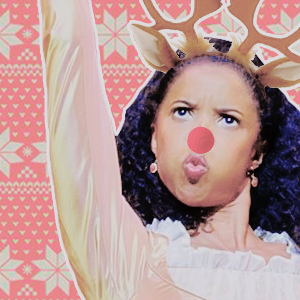I swear, this won’t be another one of those articles telling you how wonderful Hamilton is. So, so many of those have been written: It’s fair to say no new musical has created this much critical acclaim and excitement in four decades. I weighed in on the show way back in early April. So, this Christmas morning, I want to talk about something entirely different.
It’s the best present I received all year, and it’s something my sister sent and … why prolong the suspense? It’s Hamilton, the Genius Annotation!
Wait a minute – wasn’t there just a promise that this wouldn’t be about Hamilton?
Nope, I’m not going to talk about the show, now. But you might not know that some unusually intelligent fans of the show have put up an annotated libretto:
http://genius.com/albums/Lin-manuel-miranda/Hamilton-original-broadway-cast-recording
That means you can read all of Lin-Manuel Miranda’s lyrics, and, every few words, certain phrases are clickable. Clicking leads to a discussion of various aspects of the writing. Most obviously, since Hamilton is based on true events occurring around the American Revolution, there is commentary from historians. And you know how historians are, they’re apt to argue, amongst themselves, over minuscule details. There’s a limited amount of certainty as to everything that happened in the 18th century, so, in nerdy manner (and I don’t use “nerdy” as a pejorative), details get batted back and forth.
Readers of this blog, I hope, embrace the nerdiness involved in picking apart the fine points of musical theatre writing. We are all nerds: we love this stuff.  And that’s the gift from Genius.com: a complete musical being picked apart by fellow nerds. Sometimes, the notes have to do with rhyming, word-choice, orchestration choices, and a wide range of issues of craft. It’s my impression that this resource has been formed through the wiki process. That is, all visitors are invited to comment, and, nerdily, comments are commented on, assessed for their validity.
And that’s the gift from Genius.com: a complete musical being picked apart by fellow nerds. Sometimes, the notes have to do with rhyming, word-choice, orchestration choices, and a wide range of issues of craft. It’s my impression that this resource has been formed through the wiki process. That is, all visitors are invited to comment, and, nerdily, comments are commented on, assessed for their validity.
The greatest treat of all is when information about the writing of Hamilton comes from Hamilton’s writer himself, Lin-Manuel Miranda. Anyone can speculate about what he was thinking of, what inspired him, what he’s referring to. And that’s fun. But to get the real answer: more fun.
For instance, there’s a note that Miranda’s use of the word, “fraught” may have been inspired by Stephen Sondheim’s song, Impossible, which also uses it. I find this highly doubtful. But, I’m always willing to admit that large parts of my vocabulary were borne of encountering words in show tunes. Here’s an example:
I used to be a hoyden
Boys were my hate,
I was a lady hermit
I couldn’t be annoyed in
Making a date
“Silly,” I would term it
You seemed so daring my heart grew frail,
Now I like wearing my coat of male.
– Lorenz Hart
That was my favorite song for many years (I Feel At Home With You).
The web resource on Hamilton seems a huge gift to me for another reason. I may know a few things about American history, but all I know is that I know nothing about the recent cultural phenomenon of rap and hip-hop. Now, I’ve long admired rap, from afar, because it’s the only popular example I can think of where ears are fully tuned into lyrics, enjoying the wit and cleverness of what’s being said. I’m not denying that there are plenty of popular songs with interesting lyrics, but the rap fan is someone who’s so fascinated by words and what they can do, appreciation of the music is truly secondary. I get impatient with the reverse – when music is interesting but lyrics are deadly dull.
Lin-Manuel Miranda occupies a unique place among writers: He’s a musical theatre creator with an admirably broad appreciation of musicals from the past century. He’s also a huge aficionado of rap. His mostly-rapped musical, Hamilton, makes a huge number of allusions to important rap and hip hop artists. And, me, I’m the damn fool who doesn’t know anything about this history. If only there was a place I could go to get a sense of what rap-master LMM is alluding to.
And that’s the gift of the site once known as Rap Genius. When a character in Hamilton uses the phrase “carefully taught” I have no trouble getting the reference to South Pacific. But when a song implicitly riffs on Ten Crack Commandments by The Notorious B.I.G., well, that’s bound to sail over my head.
So, for me, reading the annotation is a fascinating discovery. The popular music antecedents were previously unknown to me. The true history of Alexander Hamilton is interesting because there’s some disagreement. Also, since Miranda’s writing a show to entertain, and not an academic dissertation, there are some divergences from actual events. These changes illustrate how the musical writer’s job involves compression, dramatizing, but not necessarily fidelity to the truth (whatever that is). And, whenever the comments concern the craft of musical-writing and references to other musicals, it’s nice to find that there’s a whole community out of there, thinking about the sorts of things that obsess me.
So, Merry Christmas, fellow nerds! Pour yourself a cup of Hamilton Genius Annotation and nerd out!



 Posted by Noel Katz
Posted by Noel Katz 
